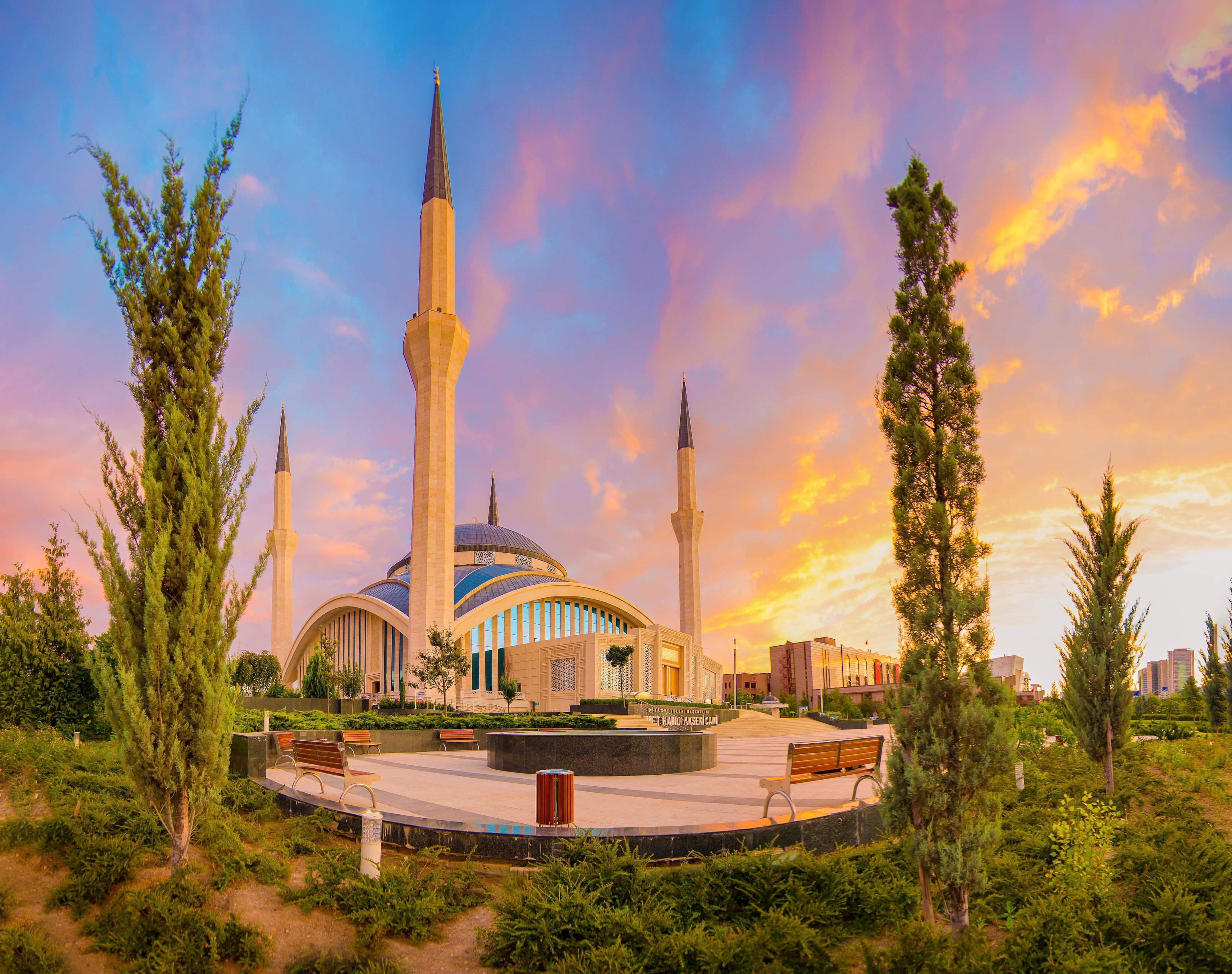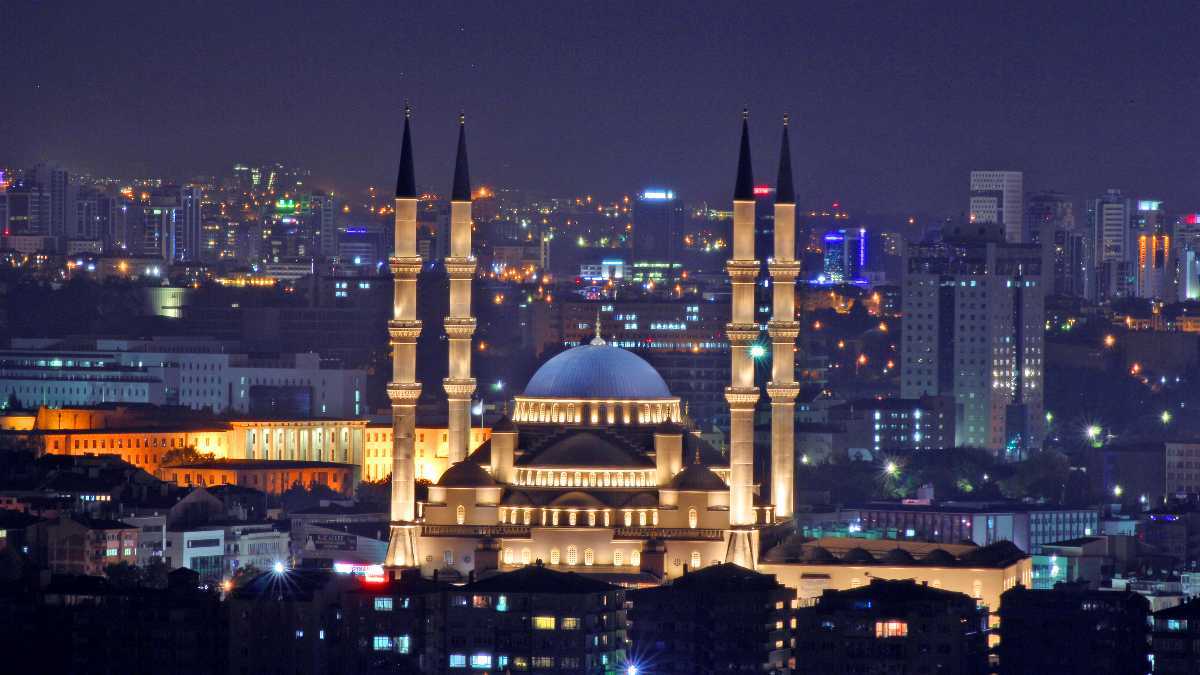



Ankara, the capital city of Turkey, blends modernity with rich historical and cultural heritage. As the country’s political and administrative center, Ankara is known for its monuments, museums, and vibrant cultural life. It’s the second-largest city after Istanbul, offering a mix of ancient history and modern urban living.
Spring (April–June): Mild temperatures (15–25°C), perfect for sightseeing and outdoor activities.
Autumn (September–November): Cool and pleasant (10–20°C), ideal for exploring historical sites.
Winter (December–February): Cold and snowy (0–5°C), suitable for those who enjoy winter landscapes.
Summer (July–August): Hot and dry (25–35°C), best for indoor attractions like museums.
By Air
Esenboğa Airport (ESB): Located 28 km northeast of the city center.
Direct Flights: Connects to major international and domestic destinations.
Airport to City: Shuttle buses (BelkoAir), taxis, and car rentals are available.
By Train
Ankara Gar (Train Station): Serves high-speed trains (YHT) from Istanbul, Konya, and Eskişehir.
Duration: ~4 hours from Istanbul via high-speed train.
By Bus
AŞTİ (Ankara Intercity Bus Terminal): Major hub connecting Ankara to all regions of Turkey.
Frequent services from cities like Istanbul (5-6 hrs) and Izmir (8-9 hrs).
By Car
From Istanbul: ~4.5 hours (450 km) via the O-4 and O-20 highways.
From Cappadocia: ~3.5 hours (300 km).
Anıtkabir (Atatürk Mausoleum)
Final resting place of Mustafa Kemal Atatürk, founder of modern Turkey.
Highlights: Grand architecture, Atatürk Museum, Peace Park.
Museum of Anatolian Civilizations
Houses artifacts from prehistoric to Ottoman eras.
Must-See: Hittite, Phrygian, and Roman relics.
Ankara Castle
Ancient fortress offering panoramic views of the city.
Explore narrow streets filled with craft shops and cafés.
Kocatepe Mosque
Largest mosque in Ankara with stunning Ottoman architecture.
Capacity: Holds over 20,000 worshippers.
Hamamönü Historic District
Restored Ottoman-era houses, now a hub for art, culture, and cuisine.
Enjoy cafés, museums, and handicraft shops.
Atakule Tower
Iconic observation tower (125 m tall) with a rotating restaurant.
Offers a 360-degree view of Ankara.
Gençlik Parkı (Youth Park)
Family-friendly park with lakes, fountains, and amusement rides.
Perfect for picnics and leisure strolls.
Roman Bath Ruins
Ancient Roman thermal baths dating back to the 3rd century.
Located on Çankırı Street.
Explore History: Dive into Turkey’s past at the Museum of Anatolian Civilizations.
Walk the Citadel: Wander through the Ankara Castle and its historic district.
Attend Festivals: Enjoy cultural events like the Ankara International Film Festival (April) and International Music Festival (June).
Thermal Spa Day: Relax in the nearby Kızılcahamam Hot Springs.
Shopping: Explore modern malls (Armada, AnkaMall) and traditional Çıkrıkçılar Yokuşu for souvenirs.
Luxury:
JW Marriott Ankara – 5-star, luxury spa and city views.
Mövenpick Hotel Ankara – Stylish with wellness facilities.
Mid-Range:
Divan Ankara – Modern and comfortable.
Hotel Ickale – Central location and classic style.
Budget-Friendly:
Deeps Hostel – Cozy and social atmosphere.
Hotel Abro Necatibey – Affordable and centrally located.
Beypazarı Kurusu – Crispy, buttery pastries.
Ankara Tava – Lamb and rice casserole.
Çörek – Sweet, spiced pastry.
Kuru Fasulye – Slow-cooked beans with rice.
Top Restaurants:
Trilye – Famous for seafood and fine dining.
Boğaziçi Lokantası – Traditional Turkish cuisine.
Zenger Paşa Konağı – Ottoman-style dishes in a historical mansion.
Ankara's local culture is a fascinating mix of modern sophistication and traditional Anatolian heritage, reflecting its status as Turkey’s political, educational, and cultural hub. Here are some key aspects of Ankara’s rich cultural landscape:
Capital of Turkey: Since 1923, Ankara has been the center of Turkey’s government and diplomatic activity.
Modern vs. Historic: While Ankara represents a modern and organized capital, you can still find deep historical roots in neighborhoods like Hamamönü and Ulus.
Ankara State Opera and Ballet: Hosts world-class performances at the Opera Sahnesi (Opera Stage).
CSO Ada Ankara: Home to the Presidential Symphony Orchestra, one of the oldest orchestras in the world.
Annual Events:
Ankara International Film Festival (April) – Independent and Turkish cinema showcase.
International Ankara Music Festival (April-May) – Classical and contemporary music.
Copperwork (Bakır İşlemeciliği): Traditional copper products like pots, plates, and ornaments.
Angora Wool: Soft, luxurious wool from Ankara goats, used for scarves and textiles.
Carpets and Kilims: Intricately woven Anatolian rugs reflect regional motifs and stories.
Ankara Kedisi (Angora Cat): This fluffy, long-haired, and white cat breed originates from the region and is celebrated as part of Ankara’s cultural identity.
Protected Breed: You can even visit breeding centers to learn about these graceful cats.
Ankara Tava: A slow-cooked lamb and rice dish.
Beypazarı Kurusu: A crunchy, buttery pastry—perfect with Turkish tea.
Efelek Sarması: Stuffed vine leaves made with local herbs.
👉 Cultural Dining Experiences: Visit historic mansions like Zenger Paşa Konağı for a blend of authentic cuisine and Ottoman ambiance.
Kocatepe Mosque: Ankara’s largest mosque, blending Ottoman and modern architecture.
Hacı Bayram Mosque: An important 14th-century spiritual site located near the Temple of Augustus.
Çıkrıkçılar Yokuşu: A historic street lined with shops selling antiques, spices, and handicrafts.
Samanpazarı: Known for local souvenirs, textiles, and jewelry.
Language: Turkish is the official language, but English is commonly spoken in tourist areas.
Hospitality: Ankara locals are known for their warm hospitality and community spirit, especially in older districts.